Going on Holiday? Skip LA
California—The Golden State. Land of sunshine, Hollywood, and endless beaches, and destination for tourists from all over the world, especially for those seeking to get away from colder climes during the winter holidays.
However, for residents, over the past decade such California dreamin’ has become more and more just that—a dream. I usually try to resist writing America-centric articles, but, as a CA native living in Los Angeles County, I feel the need to warn friends and readers in other parts of the world about what is actually going on here, especially as vacation season approaches. While for most people life is generally fine outside of the city centers, crime, homelessness, and their economic consequences are becoming less avoidable, and I feel it incumbent on me to dispel the naive idea that Hollywood is anything like in the movies.
But before laying out examples of what’s going on here, I’ll lay out the policies and figures that have allowed, if not encouraged, such things to grow, especially over the past couple of election cycles. While not exhaustive, nor the beginning of the state’s problems, the main culprits for the current state of affairs are Proposition 47, so-called zero-cash bail, and Los Angeles District Attorney George Gascon, all of which amount to a gross machine that benefits criminals at the expense of law-abiding citizens.
Touted, in Orwellian irony, as the Safe Neigborhoods and Schools Act, and partly authored by then San Francisco DA Gascon, 2014’s Prop 47 ‘reduces’ crime by downgrading ‘nonviolent’ crimes and drug possession from felonies to misdemeanors. Written against a 30-year-fermented spectre of the 1980s’ War on Drugs, Prop 47 was presented to a seemingly more sympathetic and enlightened public as a way to address the costs and racial disparities of prison overcrowding (the construction of more prisons being apparently both too expensive and too stigmatizing). Simply put (and, depending on where one is, common to see), shoplifting items is no longer a felony so long as they’re under $950, and drug possession, even of drugs like Rohypnol and fentanyl, would now count as a misdemeanors. In practice, the law has led to the release of repeat offenders, who continue to convey drugs and fill trashbags with less than $950 in merchandise to presumably be kept or fenced elsewhere.
Prop 47’s effects have been compounded by the state’s elimination of cash bail for suspects picked up by police. Usually, if a suspect cannot pay bail, they must wait in prison until their arraignment; zero-cash bail means those arrested for misdemeanor and non-violent felonies (with ‘non-violent’ covering a lot of ground that many argue it shouldn’t) can be released same-day, to the bewilderment of their victims and the disheartening of the cops who arrested them. In its initial form as part of the emergency policies from CA’s 2020 Covid-19 lockdowns (its then iteration put in place to protect already jailed prisoners from the virus by keeping it out amongst the public), zero-cash bail led, like Prop 47, to an almost immediate rise in repeat offenders. After ending in July, 2022, it was reinstated in May, 2023, with a grace period before later reimplementation, when an LA County Superior Court judge ruled detaining offenders ‘solely for the reason of their poverty’ to be unconstitutional (with ‘solely’ arguably covering even more ground than the above ‘non-violent’). While, since it went back into effect a month ago, only three percent of arrests were due to repeat offenders (a three percent that could have been prevented), twelve cities are, nonetheless, suing the county to get rid of the program. With little immediate consequence beyond a slap on the wrist, and benefitting from the DA Office’s backlog of over 10,000 cases yet to be filed, offenders old and new have predictably been emboldened to commit new crimes before they have even been charged for previous ones.
Of course, zero-cash bail was not an invention of 2020; it had been pushed for years by progressive advocates of judicial reform who allege bail to be an unfair punishment of the poor and minorities. Like Prop 47, zero-cash bail was sold to voters as the best means to provide equity for disenfranchised communities unfairly oppressed by supposedly too harsh sentencing and too costly bail schedules. This perspective is maintained by many voters, as well as the politicians they elect and reelect. One such politician is, of all people, LA’s current District Attorney.
Another tool in LA’s soft-on-crime machine, DA George Gascon moved south after pushing empathy-based policies in San Francisco, to spectacular lasting effect, to spread the same. On his election, Gascon declared that his office would not prosecute criminal enhancements—felony firearm possession, gang affiliation, multiple-strikes status, &c—that would require adding jail time to conviction, and that he also planned to retroactively review even death-row cases to remove such enhancements to give lighter sentences. Such a blanket refusal to enforce established criminal law would, one would think, seem tantamount to a de facto cancelation of it—something under the purview of legislature and courts, but not an executive. Either way, with such radicalism Gascon started his tenure being lenient on criminals, present and past, while working against law enforcement and public safety.
Put in place to ostensibly reduce prison populations and mitigate racial disparities in conviction numbers, Prop 47, zero-cash bail, and Gascon’s backwards approach to crime have had effects visible across the state, but especially in inner cities. One of the most glaring effects has been the growth of homeless encampments on sidewalks, in vacant lots, and under road overpasses. Freed from the worry that their drug habits and the theft that supports them will land them a felony, and assured they will be quickly released if they actually do get picked up, the homeless have become a local fixture in LA over the past decade. Indeed, even in Pasadena, a veritable Hollywood Producers’ Row, one can now see tarps, trash, and transients, the forward envoys of future encampments. Whether any countervailing NIMBYism towards this new ad hoc infrastructure will provoke residents to change their voting habits remains to be seen, but more on that below.
While most residents and tourists can avoid the fire and biohazards posed by these encampments, there are, nonetheless, the dangers posed to people and businesses, with immediate as well as lasting effects. Contrary to the romantic stereotypes behind the policies, the participants in the current crime wave are far from the downtrodden Jean Valjeans and Aladdins that many predominantly Democrat CA voters sympathetically assume. As could have been (and was) predicted by anyone to the right of the Prime Minister who is allegedly not Castro’s illegitimate son, leniency towards crime has produced more of it, with smash-and-grab thefts, often during business hours, becoming a daily occurrence (for example this, or these, or yet this, or this, or that, or this, or this, et cetera). And theft always carries the implicit threat of violence, as the manager of my local Ralph’s grocery store learned when confronting a thief this past September. Because of stories like this, chain store employees have been ordered not to engage with thieves so as to avoid insurance liability, reinforcing the sense of entitlement displayed by thieves (property and business insurance is a whole other topic I don’t have time to explore; in short, by rendering businesses uninsurable, the above policies are precluding future entrepreneurship in the state touted, for now, as the world’s fifth largest economy).
After putting even basic necessities under lock and key did not work, retail mammoths like Target have, predictably, shut down or plan to shut down CA locations. Furthermore, food spots as seemingly staid as Starbucks are starting to pull out due to safety concerns. In addition to removing day-to-day resources (and revenue) from inner cities, stores that theoretically have the most to gain from tourists are leaving them bereft of amenities—from coffee and food to toiletries to diapers to medicine to everything else that might make their stays near key landmarks more enjoyable.
One might rightly say that with planning and situational awareness most of the dangers surrounding in-store theft can be avoided. Indeed, while these are always one’s own responsibility, first, they are now expected by law enforcement. Displaying the ‘blaming the skirt’ mentality of Gascon’s approach to criminals and their victims, LA police earlier this year advised people not to wear jewelry in public. Unfortunately, in addition to punishing locals with the consequences of their actions (both in what they wear and in whom they vote for), such approaches affect visitors, too. Tourists not keeping up with LA politics may not have heard the advice—and might suffer the consequences of their assuming a baseline of social trust in the City of Our Lady of the Angels.
And theft is not the only, or even worst, crime residents and visitors need to worry about. Indeed, while there are three years of incidents to choose from, two recent cases show just what DA Gascon thinks of law-abiding citizens in relation to criminals. In September an adult woman harassed and beat up a thirteen-year-old after school at a McDonald’s. Despite her being caught on camera by multiple witnesses, the woman’s sentence was reduced from a felony to a misdemeanor at the request of DA Gascon, whose office cited the fact that the teenager may have escalated the interaction—presumably by putting her hands up to protect her face—thus expanding the above skirt-blaming to apply to underage girls. In a more recent case that’s perhaps too close to the above idiom for comfort, a woman in Long Beach was sexually assaulted in broad daylight by a homeless man who, grinning with pants unzipped, lifted her dress and thrusted against her so vigorously that it knocked her down before he was pepper sprayed and chased off by a bystander.
Despite the man’s having been caught on camera, and despite its being against the requests of Long Beach City Prosecutor (who, in his request for a felony charge, had to coddle to the DA’s sympathy for criminals by emphasizing the rehabilitation the man would receive), Gascon initially charged the man with a misdemeanor for sexual assault (presumably for the groping) and vandalism, citing the lack of evidence of the man’s intent to actually commit felony rape. The decision’s having provoked outrage from many directions, the DA eventually charged the man with a felony, but the fact that this was not the initial charge speaks to the disconnect between Gascon and the cities and citizens he has sworn to protect. What more the DA’s office needed to discern a man’s intent than his pressing his exposed member against a woman’s backside I won’t presume to know, but one thing is clear: despite claiming, in campaigns, to stand for children and women, DA Gascon sees them both as culpable when attacked, and treats violence against the latter the same as mere property crime.
One should not miss the correlation between that last story and public transit. Tourists expecting LA public transit to be like that of their home countries should be warned: it is now a truism that to ride public transit is to risk being harassed, which, now, always carries the threat of violence. While such occurrences certainly precede the last decade (I’ve personally witnessed them when riding the subway), stabbings on and near public transit are becoming more frequent. Indeed, incidents of violence are so frequent on transit that drivers and conductors do not even stop for them, even when it places LA Metro in legal liability. Granted, at this rate if they stopped for every instance of crime they’d never get anywhere.
Such stories can leave one wondering where the police are in all this. The answer? Just as frustrated as the rest of us. Predictably, LA’s legal leniency to crime, added to the extra scrutiny on police across the country (see ‘the Ferguson Effect’), has left many police discouraged and looking elsewhere for work, if not retiring early, with few willing to fill their vacated positions. One would imagine this would cause celebration among the ‘abolish the police’ lobby (a formidable presence in LA—a recently elected member of the City Council openly advocates the policy direction). However, the dearth in law enforcement has prompted the city to raise law enforcement pay and bonuses to entice people to take the, sadly, thankless job.
And, again predictably, the lack of police protection will more and more be filled by citizens willing to defend themselves. Recently, when a man came into their jewelry store armed with a hammer and a can of bear mace, one family did just that. Interviewed on local talk radio, one of the family members articulated what many are feeling across the county: ‘We had to do something…I don’t feel secure anymore in this city…These people are robbing because they don’t want to work, not because they were born poor…I don’t think it’s fair, you know?…Politicians are not working in favor [of] the small [business] owners or [of] the regular citizens. They’re just working in favor of [criminals], you know?’ This sentiment is felt by others; on hearing the DA would not initially treat her incident as attempted rape, the Long Beach woman mentioned above has purchased a taser and plans to get a gun permit. She is part of a growing number of voters from the usually pro-gun-control LA who are rediscovering the value of the Second Amendment—a trend only augmented by the Jewish community after the outbursts of antisemitism following Hamas’s attack on Israel.
As I’ve mentioned, such policies and perspectives are advocated in the name of reducing prison populations and mitigating disparities of minority representation in crime statistics. If you’re a liberal progressive who wants to be the virtuous hero and get rid of systemic racism, you’ll vote for these policies! What are you, a RaCiSt TrUmP sUpPoRtEr?! And, indeed, this is effective political rhetoric in California; unable to shake the cast of being, as the Governor claimed his own 2021 recall was a solely partisan Republican plot (somehow possible in a majority Democrat state, in a county with even higher Dem. percentage).
Gascon’s two previous recalls failed to garner enough signatures to oust the man. As I hope I’ve shown, this has mainly been a win for criminals, not voters—primarily minority. This, unfortunately, is a common story. Like many well-intentioned progressive policies that lead down the primrose path, soft-on-crime approaches to public safety meant to allegedly help minorities have ended up hurting them the most, Black and Hispanic people making up the wide majority of LA’s violent crime victims.
Thankfully, the recalls for Gascon were not the final word, and, with the effects of his policies being harder to ignore, Gascon will, hopefully, be replaced in Spring 2024 by a tougher-on-crime candidate (which is a low bar at this point). However, that would depend on voters’ connecting the dots between policy and outcome, as well as placing their own public safety over rhetorical kneejerks and partisan allegiance. I have encouraged my own liberal friends that, things having moved so far left in California, to consider voting for other policies and candidates—even, *gasp*, Republicans—would not be hypocritical but, rather, completely consistent with their values. Nonetheless, part of my optimism often involves the belief that, yes, things can always get worse, and that sometimes they have to for people to learn.
I usually hesitate to blithely throw around the word ‘tragic,’ tragedy requiring the added element of some kind of fateful choice or circumstance that produces the unfortunate outcome, but in California’s case I think the adjective fits—but not simply because we’re getting the policies and persons we voted for. In fact, California’s political elite has a history of ignoring voter decisions. While CA Attorney General, current Vice President Kamala Harris refused to defend her own state’s law (affirmed twice by voters) identifying marriage as being between a man and a woman when it was brought before the Supreme Court. Similarly, despite CA citizens’ voting in 2016, albeit by narrow margins, to speed up the penalty process rather than repeal the death penalty, when our Governor of One Hairstyle but Many Nicknames (Nuisance, Newsolini, Newscum, Gruesom…) entered office in 2019 he placed a moratorium on the death penalty, regarding his own personal predilections as trumping state law. DA Gascon is, thus, in good (or bad) company.
If anything, the tragedy of California is in our naively following the same, ever-sweetening pied piper songs of those we elect without recognizing the ever-souring and more dangerous opposite direction in which they are leading us—and not ousting them when they directly ignore our decisions.
While informing CA readers of what’s going on in LA County and convincing some to reconsider their voting patterns would be a great boon, this article’s focus is, in the end, on warning those outside of the state about what to expect should they choose to visit. Don’t get me wrong: I love southern California, which is why I am so saddened and angered by the direction it has gone—and did not need to go. Furthermore, my love stops when it places people in danger, and it behooves me and other Californians to try to prevent others from being victimised by our choices. With a lack of public law and order, things have gotten much less predictable in LA, and, while residents who have not left the state may have the werewithal to handle it, visitors expecting Hollywood to align with their expectations may be in for a rude awakening.
Even scenic outlooks far from the city center are not free from threat, much less the freeways through the inner city. Popular food spots, from restaurants to taco trucks, now carry more risk of crime, and, while some efforts to reduce the presence of homeless encampments are moving forward, housing advocates and opponents of programs like 2020’s Project Roomkey are contending over whether to require all hotels in the city to fill unbooked rooms with homeless individuals, possibly landing future tourists in rooms next to drug addicts. Add to all of this the artificially (because of taxes) high gas prices, toxic algae and sewage at select beaches (and, what with runoff from the homeless encampments, virtually the whole coast after a rain), and unavoidable looneys apparently confused about when Pride Month is, and Hollywood is a very different town than is portrayed in its movies.
Nonetheless, if people are intent on coming to California, they can certainly have a wonderful time—there is a lot to see and much fun to be had. With Pacific Coast Highway running along the ocean from Santa Monica to Monterey, as well as the High Sierras and Yosemite, the Redwoods, and Death Valley (ironically one of the state’s safer places to visit), California is made for road trips. Locations like San Diego’s Balboa Park and nearby Zoo, Pasadena’s Huntington Library and Gardens (which, among other exhibits, boasts prints of Shakespeare from his lifetime), and Long Beach’s Aquarium of the Pacific are great for those wanting to see the sights while getting in their steps and tiring out their kids. There are also theme parks like Universal Studios, Six Flags Magic Mountain, and, of course, Disneyland. With prudence, planning, and flexibility, travelers can easily have a great time, so long as they avoid certain areas, keep their car doors locked, and watch their luggage until arriving at their hotel room. If one has access to previous visitors or a local who can direct them on which sights to see and which to skip, so much the better.

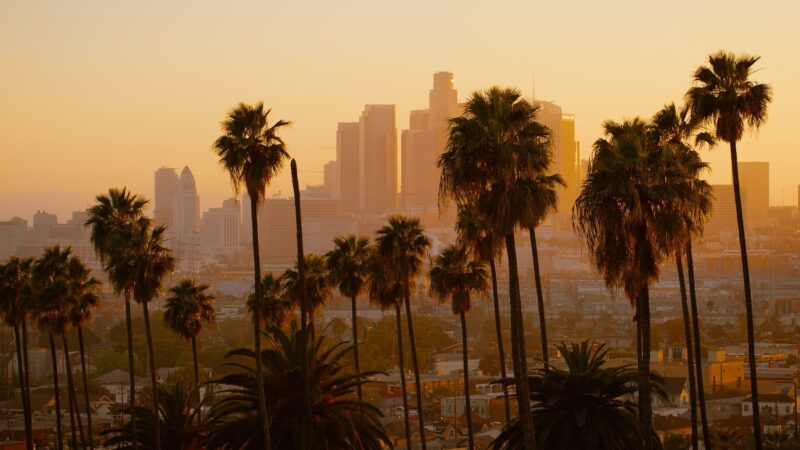
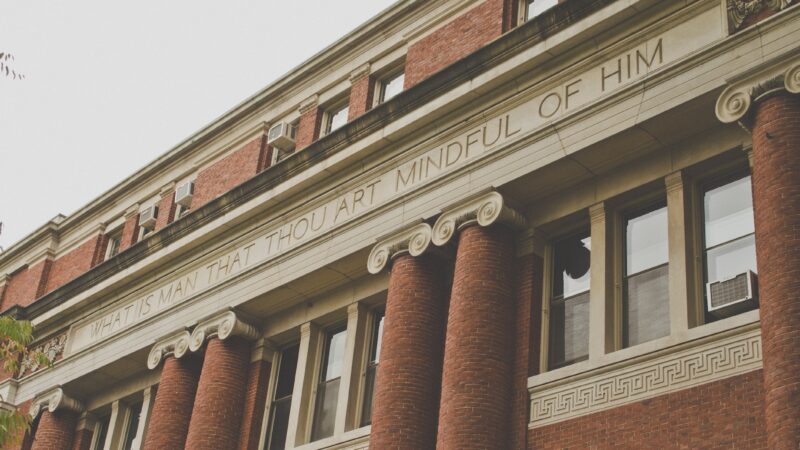
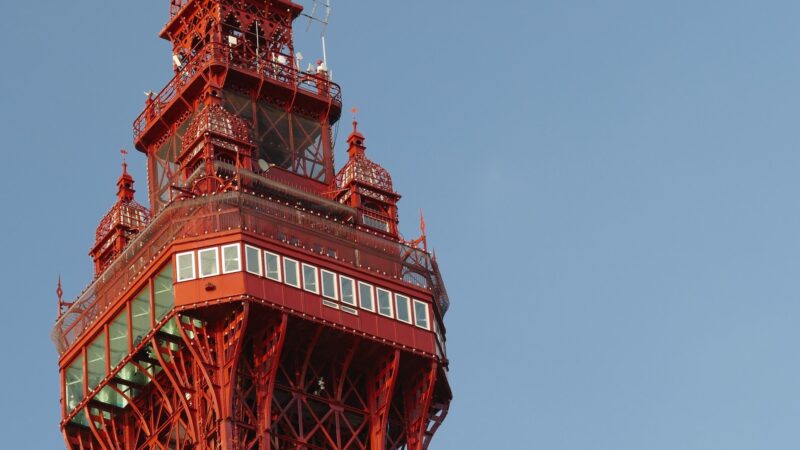
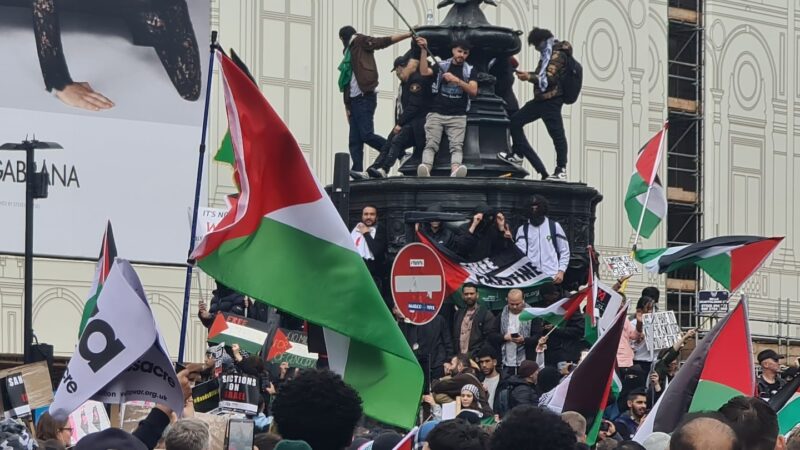

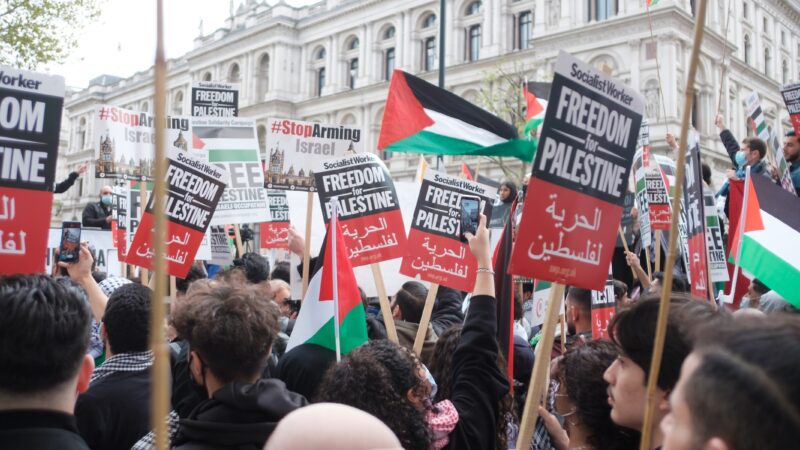


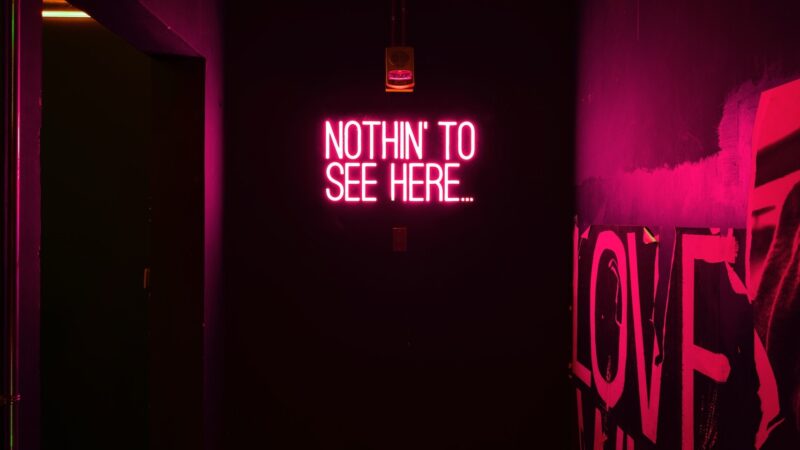
Switzerland-on-Sea: Britain in a Multipolar World
“There are decades when nothing happens; and there are weeks when decades happen.”
This quote is (dubiously) attributed to Lenin but I like it nonetheless as it appropriately captures the times we live in.
That’s not to say nothing’s happened for decades, far from it. The years following the last financial crisis have seen seismic changes across Western societies and the wider world. The Eurozone crisis, Middle East civil wars, tsunamis of illegal migration, Ukraine torn in two, Brexit, Trump, plummeting birth rates, economic stagnation, and the explosion in political corruption that resulted in the criminal psychological operation that was the pandemic and continues through war and ‘green’ policy. The weeks following Russia’s so-called ‘Special Military Operation’ felt like weeks when decades happened. Yet something about these last few weeks – with a war (even more senseless than the intra-Slavic trench slaughter) threatening to suck in the whole world – feels like we have moved into an accelerated phase of global change.
This is a familiar motif of history. Decades of failed rebellion against the Tsars eventually led to the February and October Revolutions. Newly educated generations in Africa and Asia quickly used their power and influence to kick out their colonial masters. The ticking time bomb of financialisation that started in the 1980s didn’t explode until decades later. Likewise, the absolute failure of decades of collective Western foreign policy, as dictated by the U.S. via NATO and other organisations, has now started to show some of its very worst consequences.
Never in living memory have we as a nation been more ignorant about international relations and had less perspective about our place in the world. The dumbing down of our foreign policy debate (and its incorporation into the ‘culture war’) is a far cry from even the Brexit era, when millions of Brits followed the machinations of our foreign entanglements with interest, engaging in relatively honest debates about what they should be and where our national interest lies.
In 2014, one of Nigel Farage’s major criticisms of Brussels was its ‘militant’, ‘expansionist’ and ‘absolutely stupid’ foreign policy. In a debate with then deputy PM Nick Clegg, he said the Lib Dems represented hatred and extremism by ‘constantly screaming out for us to go to war’, adding he was ‘sick to death of this country getting involved in foreign wars’. Farage said the EU had ‘blood on its hands’ for encouraging the Maidan coup in Ukraine, as well as ‘bombing Libya’ into becoming an ‘ungovernable breeding ground of terrorism’, and arming rebel militias in Syria ‘because they didn’t like Assad, despite being infiltrated by extremists’. How prescient.
Now, this type of critical discourse is almost entirely absent from our political spectrum and media. There has been a chilling uniformity of message on the blood-soaked meatgrinder that is Ukraine – more weapons, more money, Putin is Hitler, Slava Ukrainii. A feeling engineered by the unquestioned, key narrative of an independent democracy facing an unprovoked invasion (a narrative which is demonstrably untrue). With the latest conflict in the Middle East, the right has fallen behind Israel in complete lockstep, calling for deportations and arrests for speech expression, and taking a harder line than many Israelis. The left, barren of a moral compass and mentally ill, has resorted to second-hand asabiyyah and strange attempts to pinkwash Hamas, joined on the streets by the usually out-of-sight 3rd-gen Islamist yoof. It’s an ugly sight.
What is missing from all of this is Britain. What are Britain’s interests in this rapidly deteriorating international system? No one, it seems, has bothered to ask. This is a problem. The points I have made so far often provoke accusations of ‘isolationism’, and not realising that a stable globe is one of our most immediate needs. That is not in any doubt. What is highly questionable is the way we go about promoting that stability, as it clearly hasn’t been working.
In the West we still believe that we make alliances and enemies based on good and evil, or ‘shared values’, and we think this is the same as our interests. Whether ‘humanitarian intervention’ or ‘supporting democracy’, the arguments made against the abuses of certain countries must be applied equally or not applied at all, otherwise it is not a reason for action, but a pretext. The onus should be on those who argue for action, not on those who argue for not getting involved, to make their case. Especially with the mountain of evidence that outside intervention, militarily or otherwise, almost always makes countries worse.
A good case is made for this in A Foreign Policy of Freedom: Peace, Commerce, and Honest Friendship, a compilation of Ron Paul’s speeches to Congress over 30 years, each containing dozens of examples of foreign interventions and interference being counterproductive to U.S. interests. Yes, other countries are very often not nice places to live and have disagreeable cultures, but the best way to deal with them is engaging economically and not getting involved in their domestic politics. Our strategy has been to bomb countries and organise armed coups. Importing millions of people from these same countries has also turned out to be a bad idea.
So, if we step back from ‘policing’ the world, how then would we be able to ensure a stable international environment? Like charity, order starts at home. We preach to the world about how to run their societies when we have so many problems of our own. We defend the sanctity of others’ borders and sovereignty while making a mockery of our own. We accuse our selected ‘enemies’ of criminality, propaganda, and deception when we do a pretty good job of all that ourselves. In other words, we don’t speak softly and carry a big stick, we bark and scream. ‘Be change you want to see in the world’ – another made up quote attributed to a world leader – is a motivational meme but it should be an axiom of a ‘moral’ foreign policy if that’s what we want.
The hegemony of the West is coming to an end and there are no two ways about it. According to comedian turned IR expert Konstantin Kisin, ‘Multipolarity requires a decade-long process of the unipolarity disintegrating. And will inevitably result in an eventual return to unipolarity with a different hegemon. This is why this process should be opposed with everything we have’. I hate to break it to him, but that disintegration has been happening for a long time already and is not something that we can now ‘oppose’ with centre-Right politicians. Their neoliberalism is why we are so exposed, having exported our manufacturing and imported the world’s poor, while crippling ourselves with manmade social and economic breakdown.
The second point made by Kisin is interesting to dissect. Is it inevitable that the West ceasing to be the dominating ‘pole’ of international power will result in another power taking its place? No, it’s not. Unipolarity is a freak of human history. The positions of the U.S. and USSR after the Second World War created the bipolar world, and their respective empires. When the Cold War ended, the U.S. subsumed communist remnants becoming the pole of global power by default. It was the end of history, and liberal democracy was the endpoint of all human social evolution and the final form of government. On this basis the position of hegemon was squandered and abused.
The reality is that most of history has been a multipolar world and as we return to that state, it will not be peaceful or pretty. The man who coined the ‘Big stick philosophy’, Teddy Roosevelt, described his style of foreign policy as ‘the exercise of intelligent forethought and of decisive action sufficiently far in advance of any likely crisis’. To apply that to Britain today would mean gearing up to be a Switzerland-on-Sea; a discerning, independent, and sovereign nation.
When it comes to defence, Switzerland is (like the UK) blessed with fortunate geography and a long military tradition. Unlike the UK, it is not in NATO, it conscripts its young men, invests in its defence infrastructure, and does not take part in foreign wars. It is also a natural home for mediating and resolving international disputes, trusted by most countries around the world.
This strategic neutrality seems to work quite well for the Swiss and they do this while still aligning with the U.S. They even enjoy a boost in arms sales as other neutral countries prefer to buy Swiss weapons. Would Western civilisation collapse and the world be taken over by an Axis of Evil if the UK also left NATO, rebuilt its army, and took part in peacekeeping missions instead of wars? Probably not (If it collapses it will be for reasons of our own making). It is accepted as fact that we must dominate the world to protect ourselves from it, when in reality our attempts to do so have created the fragile state of affairs that exist today.
The fundamental mistake we make is being so certain that other countries will think and behave exactly like us. China is an ancient civilisation-state that has shown limited expansionist tendencies over many centuries. The last time Iran invaded a country was in the mid-18th century. Russia is psychologically bound by its size, geography, and history to be obsessed with feeling secure. These complicated civilisations have all been UK allies at various points during the 20th century and there is no reason why we can’t deal with them as unpleasant neighbours as opposed to mortal enemies. Unfortunately, our entire discourse ties us to the fate of the dying American empire. By taking on others’ enemies we expose ourselves to becoming targets.
Today in Britain, unchecked thousands of fighting-age purposeless men from the most turbulent, radical and traumatised parts of the world, are entering the country illegally via fleets of boats, the state seemingly powerless to stop it happening. Some would call that an invasion. Meanwhile, Tel Aviv has become the new Kiev as Prime Ministers old and new rush to get involved helping another country. Despite our politicians saying otherwise, the claim is always that they are there to create an outcome and environment that is in the UK’s interests. Well at the very least that would entail calling for a ceasefire, and at most it would mean pushing for a comprehensive political settlement. Trying to avoid a new wave of refugees, an oil price crisis and global recession would also be in our interest. There is no sign of this on Sunak or Johnson’s agenda, but there is a lot of talk about ‘finishing the job’, sticking to the narrative and facing down Iran and its proxies – the stuff of wet dreams for many a lobbyist in Washington DC.
It may be comforting to buy into the expertly packaged narratives being put out about this latest conflict, but some of us have seen this film before, and it doesn’t end well. In fact, it ends up in situations like Syria, where Hezbollah ends up defending the world’s most ancient Christian communities while Israel supports ISIS. It ends with the Jewish President of Ukraine overseeing neo-Nazi brigades fighting against Muslim and Buddhist soldiers over derelict villages. Clearly, the world is a complicated place. We used to know this. When will we give up our simple, black-and-white way of looking at it? When will we stop falling for the simplistic narratives fed to us?
Why should we have to listen to the arguments made about supporting a side in some conflicts, but not others? We are not asked to choose between supporting Azerbaijan or Armenia – because the media hasn’t told us to get angry about that. We are not asked to condemn Pakistan for expelling hundreds of thousands of Afghan refugees – a humanitarian catastrophe in the making – because the media hasn’t told us to get angry about that. Have you even heard of the ongoing massacres in West Darfur? Why the hierarchy of atrocities? If the military-industrial complex does not have an interest in these places, you will not hear about them. You will hear about the corrupt oligarchies you are supposed to hate but not about special interests that run Washington DC. In this environment, the way we see the world and our place in it becomes highly distorted.
Instead of harnessing Russia’s vast oil and gas supplies and integrating it into a pan-European powerhouse, we have made it into an enemy and pushed it towards China (our genuine rival). Yes, Russia is a deeply problematic country, scarred by a century of communism. Yet they are people who you can do business with if you respect their interests and treat them equally. Instead of trying to bring Iran and Saudi Arabia together to heal and develop the Middle East (which China successfully started doing), we are now seizing on this opportunity to bang the drum for war with Iran while arming Saudi Arabia to the teeth. Yes, Iran is also a seriously problematic country, but we have meddled in their affairs and waged hybrid war against them for decades. We deposed their first democratic leader replacing him with a decadent monarch who sparked an Islamic revolution. Since then, our aggressive stance in the Middle East encouraged them to develop nuclear weapons. The P5+1 deal was a step in the right direction, and there is no reason we can’t go back to that kind of preventive diplomacy. Their resilience to our sanctions shows they are at least enterprising.We are not as powerful as we were, and the world isn’t as weak as it was – they want to make money and develop. Whereas we don’t even know what we want. So, we can either up our own game and grow together with emerging countries or die trying to maintain unipolar dominance.
The Monroe Doctrine, one of the founding foreign policy doctrines of the United States, holds interference into the affairs of South and Central America as hostile. In other words, it’s their turf. Yet we deny other major powers any legitimate sphere of influence. ‘Do as I say, not as I do’ isn’t cutting the mustard anymore. Just for a moment think of the anger up and down the land over the weekend, as foreign conflicts played out on our streets, at the same time as one of the few remaining events of ancestor worship in Britain. Now imagine how larger this anger would be if China had military bases in the Republic of Ireland, or if Russia was funding a violent Republican overthrow of Stormont. We need a sense of perspective.
At a time of peak ignorance of the rest of the world, our domestic woes in the UK have never been more connected to global goings on. This is the sad paradox we find ourselves in. Our soft power erodes as we dilute our culture and destroy the fabric of traditional, family life. Our hard power is under-resourced and overstretched, leading to no strategic objective, and resulting in a lot of dead or traumatised soldiers and many more people who hate us with a vengeance. Our foreign policy – which is completely dictated by the U.S. – has radicalised parts of the immigrant populations we have brought in and left us exposed to unknown numbers of hostile actors. Sanctions warfare is paid for by the heating and shopping bills of the working class.
Brexit exposed the reality of how deeply controlled the UK is by international organisations. If you thought trying to decouple from the EU was an impossible task, detangling ourselves from NATO and the U.S. intelligence apparatus will be an entirely different ballgame. Brexit also revealed a genuine desire by the British public to be that global, independent, sovereign trading-nation making its own deals with countries across the world, not beholden to outdated policies and the groupthink of corporate-controlled politicians and the technocrats under them. Well, to actually do that we need to embrace a multipolar world and have a bit of confidence in ourselves.
Just as Remainers said we were too small and insignificant to survive outside the EU, so too will people say that we are too small and insignificant to survive outside the NATO/U.S. umbrella. It is doubtful there will be a NATO in a decade from now, so we might not have a choice. It is also likely the U.S. will suffer greatly (along with the whole world) from the eventual collapse of the dollar, finding it hard to avoid some form of civil conflict. Until then the music will still play on the titanic, but will the UK have the sense to get on the nearest lifeboat? As much as a military alliance provides protection from potential enemies, it also forces members to take on enemies that they might not ordinarily have, leaving them more exposed and then in need of protection.
Those imbued with the neoconservative zest for spreading liberal values by the bullet and bombing the world into democracy will no doubt be horrified by the suggestions made here, not being able to conceive of a Britain that doesn’t play the role of shit on the U.S. jackboot. I recall a different Britain, however. One that had the best diplomatic service in the world, staffed by the greatest linguists. A Britain that had state capacity and the ability to execute its will. A country that despite its allegiances was able to identify and pursue its own genuine national interest. To return to this state we ultimately must fix ourselves domestically and as a society. Until then, it would do no harm to pursue a more sophisticated approach to dealing with the rest of the world.By learning the difference between being allies with a country and being stuck in a political-military straitjacket with them, the West has an opportunity to revitalise itself and thrive in a multipolar world.
Deprived of global empire, the U.S. will be able to fight off its leviathan corporate oligarchy and develop to full potential. Europe will be able to pursue its own security and economic interests, not just American ones. Realpolitik will make its triumphant return. The UK, perhaps in the best position of all, will be able to take advantage of not being a subordinate and truly become ‘Global Britain’. I urge readers to reject those who want a war of civilisations and embrace this positive, sensible, and more human way to approach our future and the world.
Photo Credit.